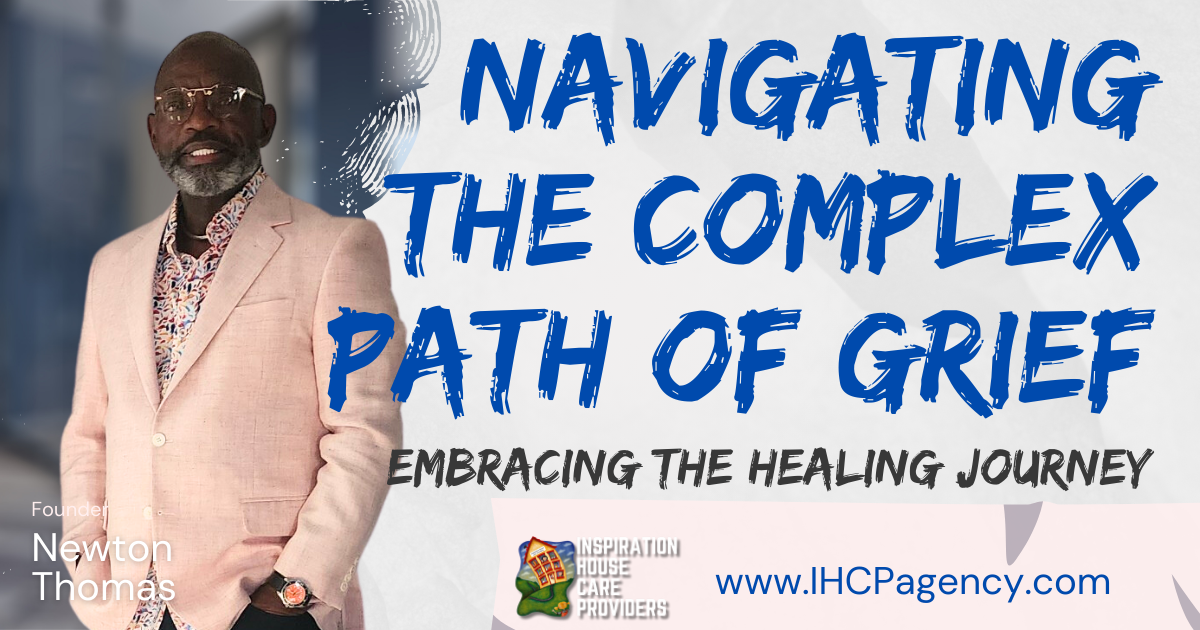- By Newton Thomas
- June 12, 2023
- Blog
Navigating the Complex Path of Grief
Grief is an intricate and deeply personal experience that we all encounter at some point in our lives. Whether it’s the loss of a loved one, a cherished relationship, a dream, or even a significant life change, grief can leave us feeling lost, overwhelmed, and emotionally shattered. In this blog post, we will explore the multifaceted nature of grieving and provide insights and strategies to navigate this challenging journey.
- Understanding the Landscape of Grief: Grief is not a linear process with a clear beginning and end. It is more like an unpredictable landscape with peaks and valleys, where emotions fluctuate and evolve over time. Recognizing that grief is a natural and necessary response to loss is the first step towards understanding and accepting its complexities.
- Allowing Yourself to Feel: In a society that often encourages us to be strong and suppress our emotions, grieving requires us to embrace vulnerability. Give yourself permission to feel the pain, sadness, anger, and confusion that accompany loss. Remember that these emotions are normal and part of the healing process.
- Nurturing Self-Care: During times of grief, self-care becomes vital for our well-being. Pay attention to your physical, emotional, and mental needs. Engage in activities that bring you comfort and solace, such as exercise, meditation, journaling, or spending time in nature. Take small steps each day to prioritize your well-being.
- Seeking Support: Grief can be an isolating experience, but it’s important to remember that you don’t have to navigate it alone. Reach out to trusted friends, family members, or support groups who can provide a listening ear and a safe space to express your emotions. Professional counselors or therapists can also offer valuable guidance and support throughout the grieving process.
- Honoring the Deceased or the Loss: Finding meaningful ways to honor the memory of a loved one or acknowledge the significance of the loss can be a powerful part of the healing journey. Consider creating rituals, dedicating a space for remembrance, or participating in activities that commemorate the person or experience. These acts can help keep their memory alive while providing comfort and closure.
- Embracing Time and Patience: Healing from grief takes time, and there is no set timeline for the process. Be patient with yourself and allow the journey to unfold naturally. Avoid rushing through the pain or trying to suppress it. Embrace the small moments of progress and acknowledge that healing is a gradual and non-linear path.
- Finding Meaning and Growth: While grief can be overwhelmingly painful, it can also serve as a catalyst for personal growth and transformation. As you navigate the grieving process, reflect on the lessons learned, the strengths you have discovered, and the new perspectives you have gained. Seek opportunities to channel your pain into something meaningful, such as supporting others who are going through similar experiences or pursuing activities aligned with your values.
Conclusion: Grieving is a profound and intricate process that requires patience, self-compassion, and support. As you traverse the landscape of grief, remember that it is okay to feel a wide range of emotions and to seek help when needed. Embrace self-care, honor the memory of what has been lost, and allow yourself the time to heal and grow. Through the pain of grief, there is an opportunity to find meaning, resilience, and a renewed appreciation for life’s precious moments.










